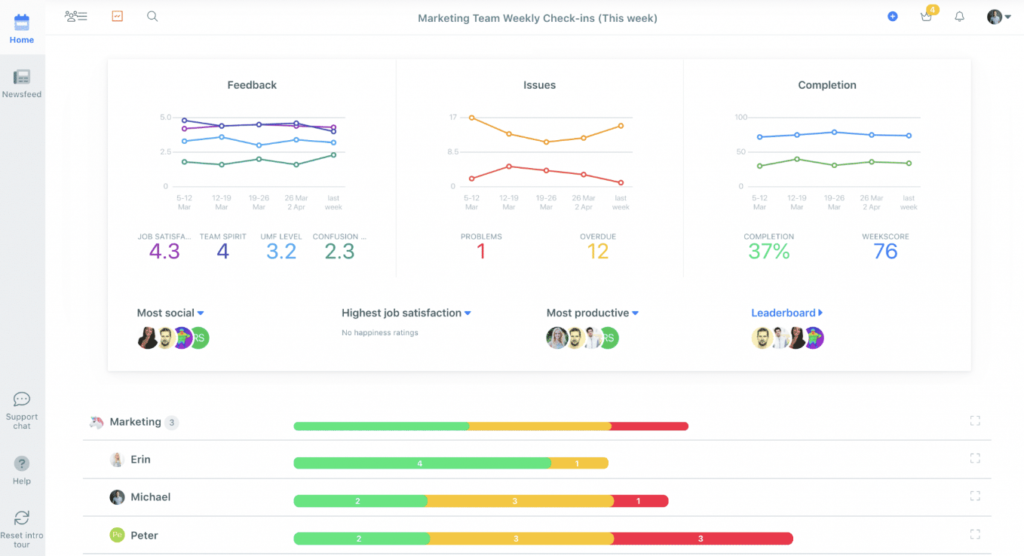This article is largely based on Simon Sinek’s talk on leadership and management
Regardless of your journey to the position of a team leader – the job is tough. It is, in Simon Sinek’s mind, one of the most commonly misunderstood jobs in the world.
See, as a leader, there are much more responsibilities than just getting the job done. It is about being the roof, the drainpipe and the tissue box for a collective group of dedicated people with the same responsibility you yourself probably had previously – getting the job done.
“But nobody shows us how to do that. And that’s why we get managers and not leaders.”
Simon Sinek
There are two critical characteristics in Simon’s idea that distinguish leadership from management – empathy & perspective.
We are going to to talk about these two things and more importantly – we are going to talk about how to lead the working people of today – *drum roll* The Millennials. So how to motivate millennials at work?
Before we can discuss any of the concrete strategies for leading Millennials though, we first need to study them and acquire a position of empathy & perspective towards them.
The “Millennial problem” broken down into 4 things
P – Parenting
“Too many Millennials have grown up subject to what has been described as a failed parenting strategy. They were told constantly that they were special as they were growing up and that they can have whatever they want just because they want it.”
Simon Sinek
A good example of this problem in Simon’s mind is the concept of participation medals. He says that science has shown multiple times that giving out medals for participation both devalues the feeling for the people who worked hard and makes the losers feel embarrassed because they know they didn’t deserve the praise. This system emphasizes the thinking that there is no need to be exceptional or better than others in something. In result, you will be left with a generation that feels empty inside and hasn’t been taught to find the motivation to improve.
“They grow up, start a job and in an instant, they find out that they’re not special, that you don’t get anything just because you want it, you get nothing for coming in last, and your parents cannot help you get a promotion – and in an instant, their entire self-image is completely shattered.”
Simon Sinek
T – Technology
“Dopamine is responsible for the feelings we get when we find something we’re looking for or we accomplish something we set out to accomplish.”
Simon Sinek
We have age restrictions on alcohol, smoking and gambling but we have no age restrictions on social media or cell phones. Young people are so hardwired to the high doses of dopamine that they get from being on their tech devices every day that the stresses of real life seem too hard to overcome – they don’t seem worth pursuing since the threshold of the dopamine kick is too high compared to for example getting a beeping notification that someone texted you on your phone. That results in a young ambitious generation of people having no experience in coping with difficult situations and no desire for going through something painful to enjoy a rewarding dose of dopamine afterwards.
I – Impatience
“Young people seem entitled – but I believe they are not entitled, but they are, in fact, impatient.”
Simon Sinek
This generation of people has grown up and been constantly surrounded by instant gratification. You don’t even have to leave your house to do most things – you can order your food, your electronics and most of everything else from the comfort of your bed. If you want to watch a specific movie, you no longer have to wait for weeks for the TV to show it – you just open Netflix. Swipe right – you got a date. The examples are endless – the point is that we have enabled this generation to grow up in a world that so strongly applies the instant gratification model to life that they no longer realize the most important thing – life is about the journey, not the destination.
E – Environment
This wonderful, smart, idealistic, ambitious, hard-working good group of people that were dealt a bad hand and we’re putting them in corporate environments that do not care about them as human beings.”
Simon Sinek
That sentence says it all. Now that we have talked about empathy & perspective, and we have tried to understand the needs and problems – let’s move onto solutions.
How To Motivate Millennials At Work?
1. Promote Honest Communication
Nobody wants or likes to share their honest opinions and feelings in a workplace where failure is not accepted and where the stability of the job relies solely on performance. We have to accept the fact that failure happens to everyone – even to the most successful and hard-working people. Letting your people know that failure is something to learn from, and embracing the fact that sharing your failures with others creates a more engaged, honest and successful team where people can learn from each others’ mistakes, is crucial for a team to succeed.
2. Support Asynchronous Working
There is no denying the fact that we are constantly moving towards a more remote work environment and thus the importance of asynchronous communication is on a rapid increase. Structuring or restructuring your company to fill the needs of employees is something inevitable in the future and those who adapt to it quickly will experience more success.
3. Make Your Employees Feel Needed
For a company to have engaged and satisfied employees, it has to realize the importance of giving positive feedback more than negative. If your employees do their work the way they should it is already a reason for appreciation. Promising something and delivering it is a valuable thing which usually, especially in the workplace, is often forgotten. Showing your employees that they are truly appreciated will create a workplace like no other.
How To Practice It?
From our own experience we know it is difficult to change the structure of your company. The hesitation of whether or not it is worth pursuing often stops us from making the right move. This is why we created Team Compass – a tool for companies and teams that wish to make the transition towards a better work environment but are hesitant. This tool allows you to apply those changes, get the results and communicate them most effectively. The tool itself is simple and follows previously established frameworks (such as PPP – Plans, Progress, Problems) that support asynchronous communication and working.
Because we believe in innovating the workplace and try to involve as many people as possible in this innovation, we offer a 14-day free trial for you to get the hang of the product before making your final decision. During those 14 days, you have access to all of the materials and FAQ’s surrounding the product as well as a possibility to have a demo call with us to figure out your needs.
Let’s innovate the workplace.


